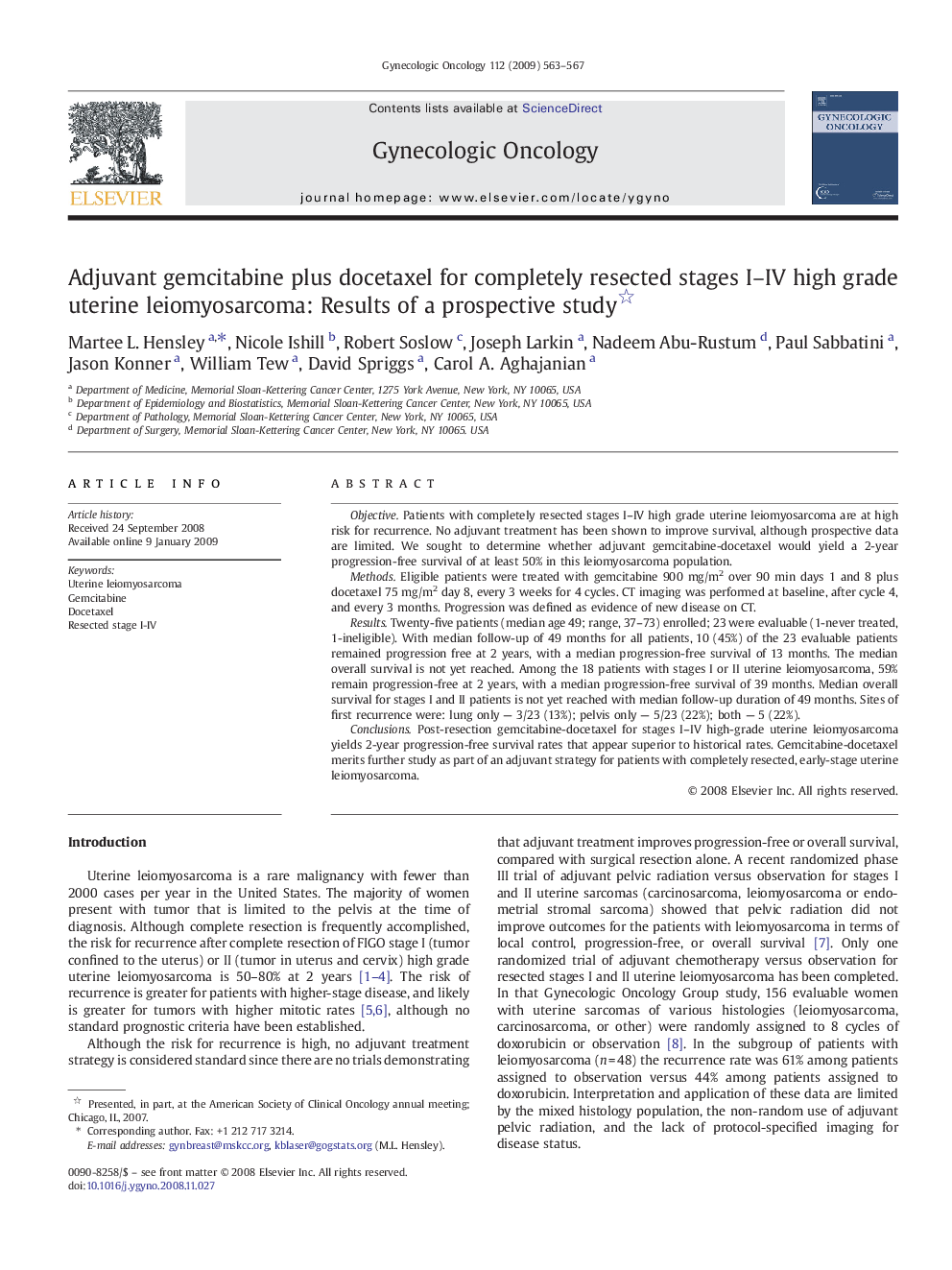| Article ID | Journal | Published Year | Pages | File Type |
|---|---|---|---|---|
| 3945966 | Gynecologic Oncology | 2009 | 5 Pages |
ObjectivePatients with completely resected stages I–IV high grade uterine leiomyosarcoma are at high risk for recurrence. No adjuvant treatment has been shown to improve survival, although prospective data are limited. We sought to determine whether adjuvant gemcitabine-docetaxel would yield a 2-year progression-free survival of at least 50% in this leiomyosarcoma population.MethodsEligible patients were treated with gemcitabine 900 mg/m2 over 90 min days 1 and 8 plus docetaxel 75 mg/m2 day 8, every 3 weeks for 4 cycles. CT imaging was performed at baseline, after cycle 4, and every 3 months. Progression was defined as evidence of new disease on CT.ResultsTwenty-five patients (median age 49; range, 37–73) enrolled; 23 were evaluable (1-never treated, 1-ineligible). With median follow-up of 49 months for all patients, 10 (45%) of the 23 evaluable patients remained progression free at 2 years, with a median progression-free survival of 13 months. The median overall survival is not yet reached. Among the 18 patients with stages I or II uterine leiomyosarcoma, 59% remain progression-free at 2 years, with a median progression-free survival of 39 months. Median overall survival for stages I and II patients is not yet reached with median follow-up duration of 49 months. Sites of first recurrence were: lung only — 3/23 (13%); pelvis only — 5/23 (22%); both — 5 (22%).ConclusionsPost-resection gemcitabine-docetaxel for stages I–IV high-grade uterine leiomyosarcoma yields 2-year progression-free survival rates that appear superior to historical rates. Gemcitabine-docetaxel merits further study as part of an adjuvant strategy for patients with completely resected, early-stage uterine leiomyosarcoma.
